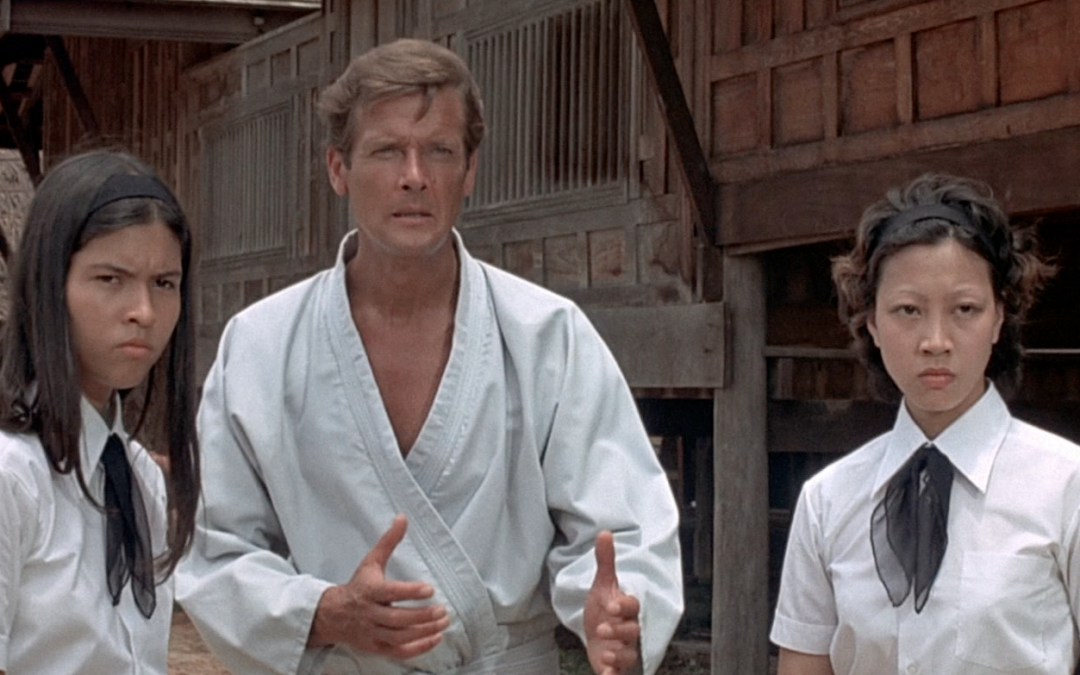
No Shame. Guilty Pleasures and The Man with The Golden Gun
This is the ninth essay in a 24-part series about the James Bond cinemas co-created by Sundog Lit. I encourage everyone to comment and join in what we hope to be an extended conversation about not only the films themselves, but cinematic trends, political and other external influences on the series’ tone and direction.
Of [In]human #Bond_age_ #9: No Shame. Guilty Pleasures and The Man with the Golden Gun
by James David Patrick
The act of claiming a movie as a “guilty pleasure” is a pre-emptory apology. You’re saying, “I love this movie, but before you pause to temper the abusive response flitting through your head or question my sanity, I also have to tell you that I know it’s really bad.” On one hand it’s noble to confess liking a movie that we, as a society, have deemed terrible. We each have individual opinions. We should confess and stand by them with conviction. On the other hand, no matter how you sugarcoat it, you’re still calling the movie you claim to love “a shitburger.”

So that said, let’s talk about the ninth James Bond movie, The Man with the Golden Gun.
While Golden Gun offers great potential and an exciting premise, it suffered because the filmmakers lacked the confidence to stick to their convictions. They added unnecessary humor. They made the villain’s threat global by force-feeding the screenplay, like a goose about to become foie gras, with a bunch of silly rigmarole about a stolen lens that can harness the power of the sun, rather than just allowing, per the initial draft of the screenplay, the threat to remain local (the threat to Bond). Other than squandering a perfectly good premise, they producers again wasted the opportunity to pave new ground for the Bond character and franchise. (They’d previously avoided using Fleming’s revenge premise contained within the novel You Only Live Twice as the cinematic response to the death of Tracy Bond.) A villain with no motive beyond besting Bond. Objectively, the movie’s more like the lazy scrapbook of a teenage girl who’s only scrapbooking because her best friend thought it would be a fun activity to share even though she’d really rather just people watch and drink an Orange Julius at the mall. Golden Gun takes on the appearance of a series of vignettes from a dozen different films slapped together into something that resembles a logical narrative. And by “resembles” I mean to say that it has credits to denote the beginning and the end.
Objectively, The Man with the Golden Gun is a mess. Subjectively, I can’t help but love it. I suppose that would fit the definition of a guilty pleasure.
(more…)